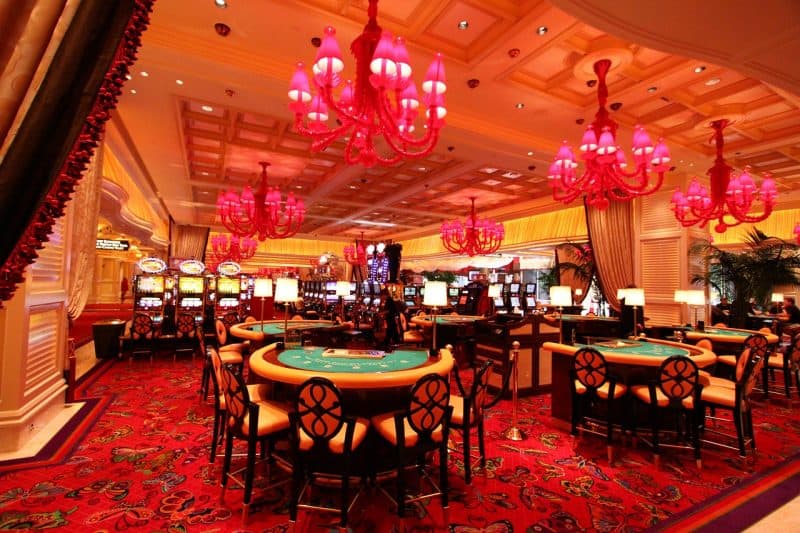
In the world of gambling, where chance and strategy converge, a unique tapestry of beliefs manifests—one that intertwines luck, fate, and the enigmatic nature of casino games. Casinos, bustling with excitement and anticipation, are not just places for placing bets; they are also arenas in which superstitions thrive. Ranging from the novice player to the seasoned gambler, these mysterious practices often shape how individuals approach the games they play, holding the belief that their actions can impact the outcome in ways that go beyond mere probability.
As players gather around roulette wheels, blackjack tables, and slot machines, the atmosphere is thick with stories of lucky charms, rituals, and codified behavior that defy logic yet provide a sense of comfort. It could be the case that it’s wearing a specific outfit, following a particular sequence of bets, or even avoiding certain numbers, the attachment to various superstitions reflects a deep-rooted desire to master the uncontrollable. This article delves into the captivating world of casino game superstitions, exploring the beliefs that simultaneously entertain and mystify those who dare to play.
Historical Origins of Superstitions
Betting activities have long been interwoven with an variety of superstitions that trace to early societies. The roots of these notions can be connected to humanity’s innate desire to control the random outcomes related with luck and randomness. In early civilizations, activities of chance were often tied to ritualistic practices. Players would invoke aid or seek favor from gods, believing that their actions could influence the odds in their advantage. This basis laid the foundation for the multitude of superstitions that developed as casino games evolved over ages.
During the medieval age, betting became a widespread pastime across the continent, and with it, a rich tapestry of superstitions appeared. Players adopted various rituals and charms, believing they could influence the results of games. The importance of numbers, in particular, started to show in superstitions related to card games and dice. The number seven was often considered auspicious, while various numbers carried unfortunate connotations. casino en ligne These ideas mirrored the societal contexts of the time, changing as they moved through generations and adapted to different gaming environments.
As gambling houses developed in the 17th century, particularly in the Italian peninsula and the French nation, the atmosphere surrounding gambling became imbued in enigma. The growing accessibility of gambling activities allowed for the spread and variation of superstitions among players. Concepts like lucky charms, specific seating arrangements, and rituals gained importance, creating a special culture within gambling establishments. As these customs continued to thrive, they became essential to the identity of gambling games, illustrating how historical developments and society shape the belief systems that influence how participants interact with chance.
Popular Casino Myths
Superstitions surrounding gambling activities are plentiful and varied, reflecting the hopes and anxieties of gamblers as they participate in chance-based activities. One of the most common views is that specific digits bring luck or bad luck. For example, the digit 7 is often seen as a favorable digit, frequently sought after by players looking for a favorable result. Conversely, the digit thirteen is routinely considered cursed, leading many players to avoid it during their gaming periods.
A common belief relates to practices that gamblers believe can influence their chances. Whether blowing on the dice before a roll, using a specific hand to place a wager, or even wearing particular items of attire, many individuals feel that these rituals can tilt fate in their favor. These practices offer a sense of power in an otherwise random environment, strengthening the idea that fortune can be manufactured through personal beliefs and habits.
Finally, the environment and vibe of the casino itself contributes to superstition. Many players suggest that the presence of certain icons, such as four-leaf clovers or fortunate tokens, can enhance their odds of success. Additionally, players might adhere to the belief that victory streaks can be interrupted by mundane occurrences, such as a person passing by or a spill at the table. The collective environment in a gambling house can amplify these beliefs, creating a shared culture of myths that goes beyond single experiences.
Impact of Superstitions on Players
Superstitions play a crucial role in the psychology of casino players, often affecting their behavior and decision-making. Numerous gamblers believe that fortune can be influenced through different rituals, such as wearing a lucky charm, selecting specific colors, or steering clear of particular digits. This reliance on superstitions can create a sense of authority in an environment that is intrinsically unpredictable. Players frequently feel more self-assured and engaged when they think that their actions could sway the result of a game in their advantage.
The impact of these superstitions extends beyond singular players, affecting the general atmosphere within the casino. For example, a player who holds the belief in the luck of a particular slot machine might attract a gathering, as others are intrigued by their apparent luck. This shared belief can amplify excitement and create a dynamic environment, leading to an engaging experience even for those who may not necessarily be believers themselves. The buzz around specific games can lead to higher participation and longer playing sessions, supporting the casino’s lively social scene.
In some cases, superstitions can lead to negative effects for players. Depending too much on rituals can result in poor gambling decisions, as some may ignore basic strategies in favor of unfounded beliefs. Additionally, the stress to perform rituals may increase anxiety and stress levels, detracting from the pleasure of the experience. Ultimately, while superstitions can enhance the thrill of playing casino games, they can also lead to poor choices that overshadow the enjoyment and amusement intended in the casino experience.